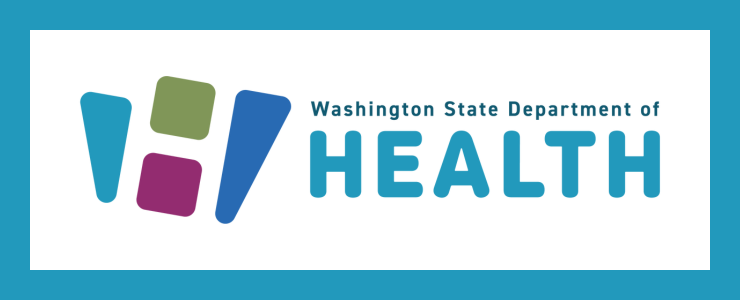A message from the DSHS’ Developmental Disabilities Administration
Keep yourself and loved ones safe by preparing now for wildfire smoke: Sharing Information from the DOH
Washington state is getting ready for what is likely to be a hotter and drier summer than normal. These conditions can lead to more wildfires, exposing millions of residents to wildfire smoke and worsening people’s health.
Smoke from fires can lead to dangerous air quality levels, especially for people with chronic health conditions like asthma or COPD, infants, the elderly, low-income or marginalized communities, and more. Exposure to fine particulate matter from wildlife smoke can irritate your eyes, nose and throat and lead to fatigue, headaches, wheezing, and other symptoms.
The WA Smoke Blog is the best tool to stay up to date on wildfires and air quality. DOH also offers practical tips to protect yourself, such as how to select a portable air cleaner, build a box fan filter, and prepare your home, on the Smoke from Fires webpage.
Here are more resources on wildfire smoke safety:
- Safety Guidelines: Wildfires and Wildfire Smoke CDC
- DDA Care Provider Bulletin: Wildfire Preparedness
Wildfire Preparedness
Wildfires have surpassed flooding hazards as Washington state’s biggest threat.
- Register for iNWS Mobile Alerting to receive text and email alerts from the National Weather Service including fire watches, warnings and advisories.
- Review wildfire evacuation level terminology. Level 1 (Ready), Level 2 (Set), Level 3 (Go.)
- Visit Ready.gov for Wildfire preparedness resources for families.
- Register to receive public alerts and notifications from your county. (Tip: do a web search by adding your county’s name and add “emergency alerts.”)
Washington State Health Department Wildfire Safety Resource Page
Smoke Preparedness
When it’s smoky outside it’s important to reduce exposure by staying up to date on air quality conditions, limiting time outside and keeping indoor air as clean as possible. Exposure to smoke can cause health problems ranging from minor to severe. Those with pre-existing conditions, infants and children, pregnant individuals and adults 65 and older can be most sensitive to wildfire smoke. Minor symptoms can include headaches, stinging eyes, runny nose and trouble breathing. Having a way to filter indoor air will benefit your health.
- Protect yourself from wildfire smoke, visit the Department of Health’s Smoke from Fires webpage.
- Stay updated on wildfires, air quality, the forecast and health information on the WA Smoke Blog.
- Find real time air quality information in your area. Visit Department of Ecology’s Air Monitoring Network.
- Be prepared at home. An easy and affordable way to make your own air cleaner is with a box fan and a furnace filter. Click this link to learn more: DIY box fan filter.
Power Outage Preparedness
Power outages can cause a number of safety concerns, check out Power Outages preparedness tips and recommendations from the Dept. of Health.
Personal Preparedness
Review your family’s preparedness plans, communication strategy and emergency supplies. Build your preparedness plan to meet the unique needs of your household. Make a plan, build a two-week emergency supply kit and stay informed.
- Visit Ready.gov for resources, tips and recommendations to improve your family’s readiness.
The American Red Cross also provides helpful resources for how to prepare for emergencies.





